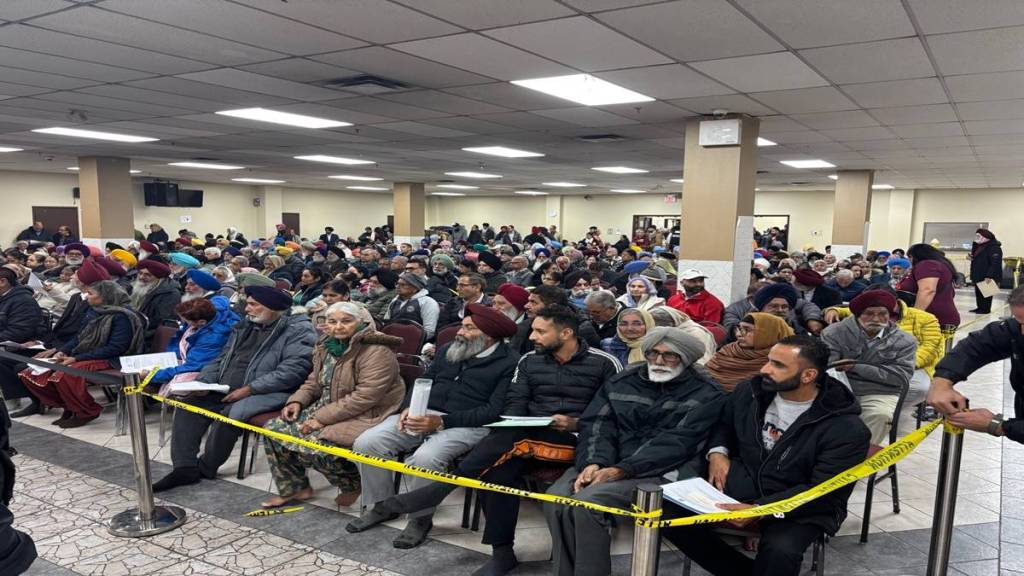The Indian High Commission in Canada has strongly condemned recent violent disruptions at its consular camps, holding “anti-India elements” responsible for the unrest that disrupted its Brampton event, co-organized with the Hindu Sabha Mandir. This camp, which primarily aimed to issue essential life certificates for Indian and Canadian nationals, encountered aggressive interference, marking the third incident in a week following similar occurrences in Surrey and Vancouver.
According to the High Commission, these camps were set up to meet the needs of the Indian diaspora, especially for life certificates crucial for renewing pensions and other services. “It is deeply disappointing to see such disruptions being allowed for routine consular work,” the High Commission stated, adding, “We also remain very concerned for the safety of applicants, including Indian nationals, on whose demand such events are organized in the first place.” Despite these disruptions, the High Commission managed to issue over 1,000 certificates.
The Brampton camp drew a large number of Sikh members from the Indian diaspora who had gathered for essential services. Ironically, Khalistani supporters—claiming to represent the interests of the Sikh community—staged a disruption outside, while hundreds of Sikh attendees were present inside. Photographs shared by the High Commission captured the peaceful gathering within the venue in stark contrast to the turmoil outside.
In response to these security issues, the Indian High Commission announced that future camps would depend on security arrangements provided by local authorities. “There were also attempts to disrupt similar camps held in Vancouver and Surrey,” the statement noted, underscoring the need for robust protection.
These incidents add to the mounting diplomatic tensions between India and Canada, already strained following Canadian Prime Minister Justin Trudeau’s accusations of India’s involvement in the killing of Khalistan activist Hardeep Singh Nijjar. New Delhi has rejected these accusations as “absurd,” maintaining that the main issue between the countries is Canada’s permissive stance toward pro-Khalistan elements operating freely within its borders.
The High Commission also mentioned that if further disruptions prevent the organization of camps, alternative arrangements would be considered, though this could inconvenience local applicants who rely on these services.


